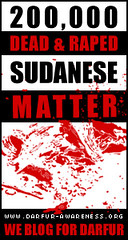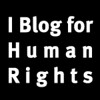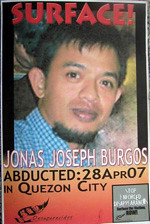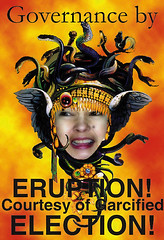Seizing an opportunity for a cultural sea change
So we just had a historic social media-powered Million People March. Now what? Specifically, what can we do to control corruption?
Instead of reinventing the wheel, I suggest that we learn from the best and apply what works. Two Asian neighbors that were once deep in the morass of endemic corruption prove that no country is condemned to the vicious cycle of poverty and the concomitant corruption that shackles and prevents its people from breaking it.
For decades, corruption was a way of life in Singapore. To reverse the tide, the British colonial government created the Corrupt Practices and Investigation Bureau (CPIB) in 1952, a very small unit of civilian investigators that held court in small nondescript offices at the Supreme Court Building. After gaining independence in 1959, Prime Minister Lee Kuan Yew moved the CPIB to the Prime Minister’s Office and made it a key partner in nation building. Now Transparency International’s annual corruption survey rates Singapore as the least corrupt country in Asia and among the cleanest governments in the world (at number 5). Ethical leadership has hugely helped launch Singapore’s economy like a rocket: Its GDP is now one of the highest in the world ($61,803, surpassing America’s $49,965).
Hong Kong too was mired in corruption for decades. Bribery, commonly called “tea money,” “black money,” or “hell money,” was standard. But public outcry in the early 70s (which reached a crescendo in 1973 when a brazenly corrupt police officer slipped out of the country while under investigation) led to the creation of the Independent Commission Against Corruption (ICAC). Hong Kong’s pragmatic leadership dispatched a task force to Singapore to observe and learn from CPIB. The result: a dramatic turnaround! Hong Kong is now the 14th least corrupt jurisdiction in the world (the Philippines is number 105), and its economy has soared like Singapore’s (current GDP is $51,946, also higher than that of the U.S.).
Of course, it’s not as simple as reaching out to our friends in Singapore and Hong Kong for consultations and creating our own an anti-corruption agency. CPIB and ICAC did not wave a wand to make corruption disappear overnight. But it’s a necessary first step to create a culture that brooks no dishonesty in both private and public transactions. Their approach is multi-pronged, from values formation (education, anti-corruption videos, etc.) to removing the conditions that breed corrupt behavior (transparent processes, streamlining of government services, high salaries for government employees, etc.). Lee Kuan Yew, arguably Asia’s most respected elder statesman, is also wont to point out the need to have political will at the top. The fight against corruption is a constant struggle he says, but “as long as the core leadership is clean, any backsliding can be brought under control and the house cleaned up.”
And Lee Kuan Yew’s single most compelling corollary advice: stigmatize corruption. The public outcry over the Napoles scam has created a momentum along this line. The public shaming of the political and civilian perpetrators sends a clear message to our people, especially the young, that corruption is not just socially unacceptable—it is utterly shameful.
Openings for a cultural sea change do not occur that often. President Aquino should seize this opportunity by creating an independent no-nonsense anti-corruption agency and appointing (for lack of a better millennial-generation word) a badass leader to head it—preferably someone with the maniacal determination of Senator Miriam Santiago. The outraged citizenry too should sustain its vigilance by institutionalizing watchdog activism (e.g., formalizing anti-corruption groups). Add to the mix the powerful Catholic Church that uses its sway not just to pedantically moralize against corruption but to urge people to actually take concrete steps to stop it, and we could very well be on our way to turning the tide against this monstrous scourge.
Instead of reinventing the wheel, I suggest that we learn from the best and apply what works. Two Asian neighbors that were once deep in the morass of endemic corruption prove that no country is condemned to the vicious cycle of poverty and the concomitant corruption that shackles and prevents its people from breaking it.
For decades, corruption was a way of life in Singapore. To reverse the tide, the British colonial government created the Corrupt Practices and Investigation Bureau (CPIB) in 1952, a very small unit of civilian investigators that held court in small nondescript offices at the Supreme Court Building. After gaining independence in 1959, Prime Minister Lee Kuan Yew moved the CPIB to the Prime Minister’s Office and made it a key partner in nation building. Now Transparency International’s annual corruption survey rates Singapore as the least corrupt country in Asia and among the cleanest governments in the world (at number 5). Ethical leadership has hugely helped launch Singapore’s economy like a rocket: Its GDP is now one of the highest in the world ($61,803, surpassing America’s $49,965).
Hong Kong too was mired in corruption for decades. Bribery, commonly called “tea money,” “black money,” or “hell money,” was standard. But public outcry in the early 70s (which reached a crescendo in 1973 when a brazenly corrupt police officer slipped out of the country while under investigation) led to the creation of the Independent Commission Against Corruption (ICAC). Hong Kong’s pragmatic leadership dispatched a task force to Singapore to observe and learn from CPIB. The result: a dramatic turnaround! Hong Kong is now the 14th least corrupt jurisdiction in the world (the Philippines is number 105), and its economy has soared like Singapore’s (current GDP is $51,946, also higher than that of the U.S.).
Of course, it’s not as simple as reaching out to our friends in Singapore and Hong Kong for consultations and creating our own an anti-corruption agency. CPIB and ICAC did not wave a wand to make corruption disappear overnight. But it’s a necessary first step to create a culture that brooks no dishonesty in both private and public transactions. Their approach is multi-pronged, from values formation (education, anti-corruption videos, etc.) to removing the conditions that breed corrupt behavior (transparent processes, streamlining of government services, high salaries for government employees, etc.). Lee Kuan Yew, arguably Asia’s most respected elder statesman, is also wont to point out the need to have political will at the top. The fight against corruption is a constant struggle he says, but “as long as the core leadership is clean, any backsliding can be brought under control and the house cleaned up.”
And Lee Kuan Yew’s single most compelling corollary advice: stigmatize corruption. The public outcry over the Napoles scam has created a momentum along this line. The public shaming of the political and civilian perpetrators sends a clear message to our people, especially the young, that corruption is not just socially unacceptable—it is utterly shameful.
Openings for a cultural sea change do not occur that often. President Aquino should seize this opportunity by creating an independent no-nonsense anti-corruption agency and appointing (for lack of a better millennial-generation word) a badass leader to head it—preferably someone with the maniacal determination of Senator Miriam Santiago. The outraged citizenry too should sustain its vigilance by institutionalizing watchdog activism (e.g., formalizing anti-corruption groups). Add to the mix the powerful Catholic Church that uses its sway not just to pedantically moralize against corruption but to urge people to actually take concrete steps to stop it, and we could very well be on our way to turning the tide against this monstrous scourge.
 Marvin Bionat is the creator of PhilippineUpdate.com, a news and views site that has served as a virtual platform that promotes various advocacies, including the political empowerment of overseas Filipinos and accountability in government. He wrote the National Bookstore bestseller How to Win (or Lose) in Philippine Elections (Anvil Publishing, 1998) and is now based in the
Marvin Bionat is the creator of PhilippineUpdate.com, a news and views site that has served as a virtual platform that promotes various advocacies, including the political empowerment of overseas Filipinos and accountability in government. He wrote the National Bookstore bestseller How to Win (or Lose) in Philippine Elections (Anvil Publishing, 1998) and is now based in the ************************************************************************


























0 Speak Out:
Post a Comment